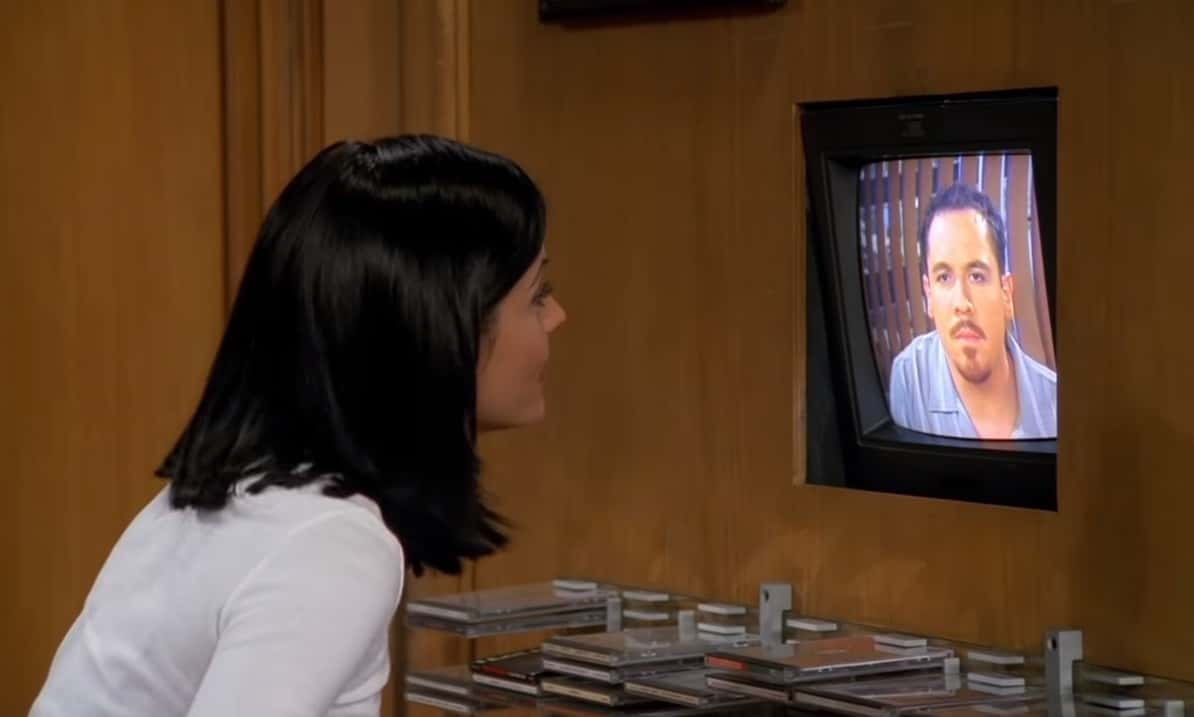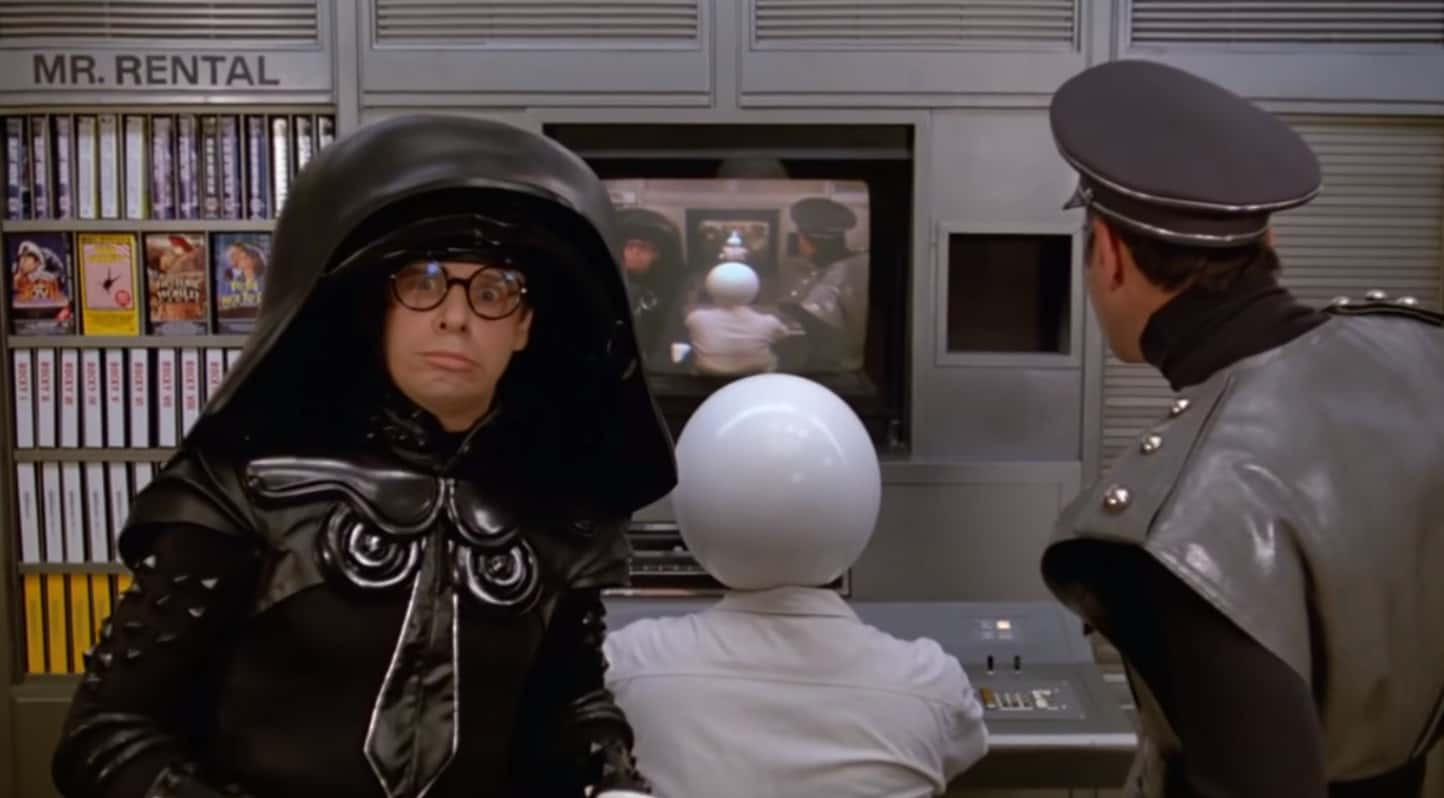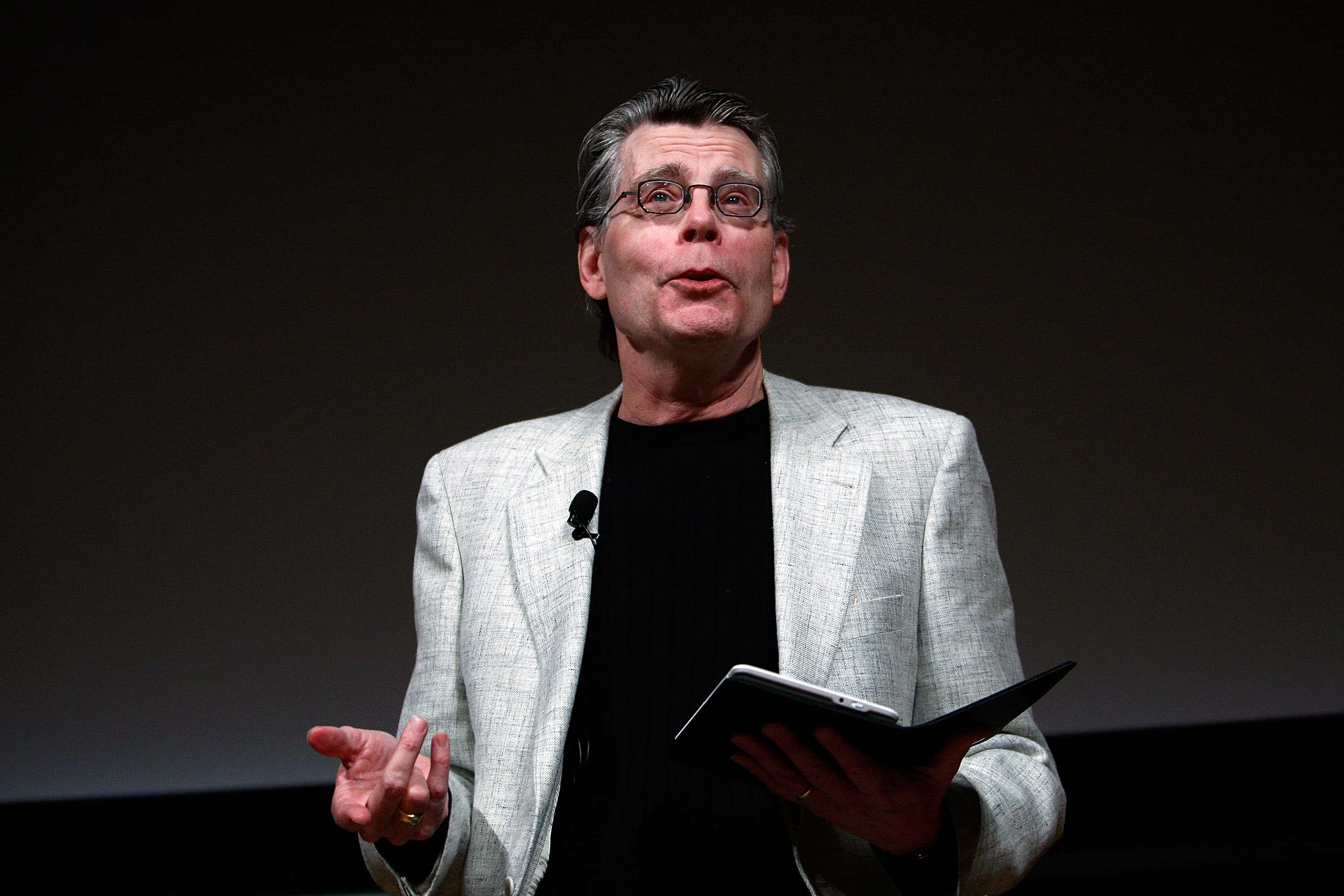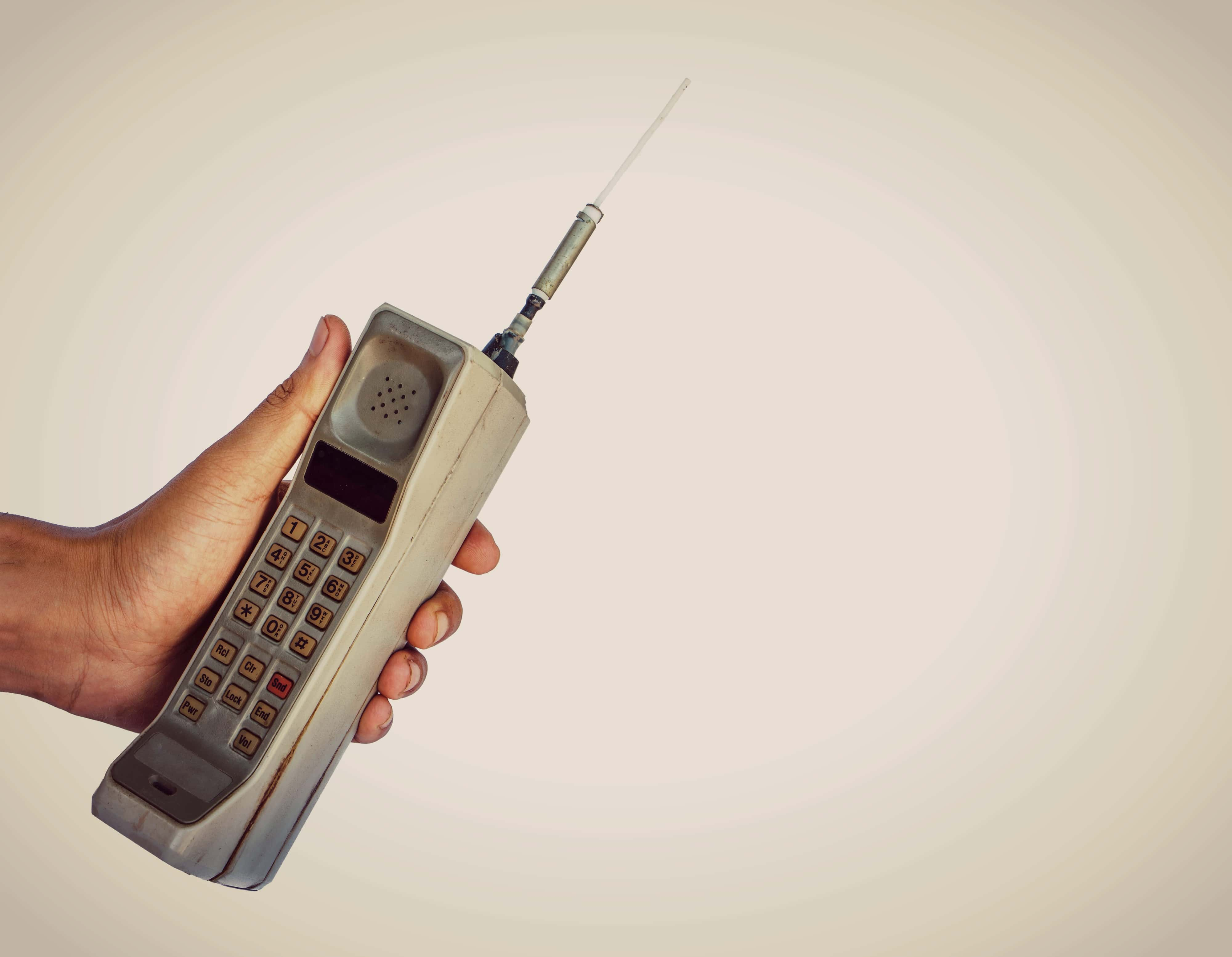For generations, scientific advancement has broadened our collective idea of what is possible and has revolutionized the way we live. Looking back on how many innovations that are so normal to us in this day and age were thought of as far-fetched and wild just a few short years ago, one cannot help but be truly in awe at what the human imagination can lead to.
And we’re not alone in feeling this way—Reddit users responded in droves when given the opportunity to share their thoughts on items and ideas from science fiction that have since become reality. Here is a small sample of what they all had to say.
1. This One Puts the “Fiction” In Science Fiction
Douglas Adams invented an eBook: "He also had a device which looked rather like a largish electronic calculator. This had about a hundred tiny flat press buttons and a screen about four inches square on which any one of a million 'pages' could be summoned at a moment's notice."
2. Triple Threat
I work with a hand-held XRF gun. You point it at a material and it gives you an elemental breakdown of its composition, then cross-references it with a library of known substances to identify the material. The technology is old, but it's only recently that you could get it in a hand-held form. I refer to it as the "tricorder."
3. A Telecom Company Conspiracy?
Ubiquitous 3G came very close to being a thing before the telecoms decided that they needed to squeeze every dime possible and then some from every bit of data transmitted.
The details are fuzzy in my mind, but I learned this from my investments class. A particular company's value and price per share were going up quickly as they were investing in 3G towers. They were looking to eventually provide low cost, flat rate 3G for manufacturers to offer basic, low bandwidth devices, like the original Kindle, throughout the US.
It was interesting. Essentially taking an older, now cheap technology, and finding customers where you can offer something "good enough" while also not charging them much for it.
I think the versatility of newer devices coupled with the general demand for LTE as well as how readily available Wi-Fi can be kind of killed it. I thought it was a cool idea.
4. I Can See You
Heck, in the ‘90s, on the show Friends, video calling is new technology that only Pete the multimillionaire has. Now nearly everyone has access. It's just crazy to me because the technology is the only thing that makes that show feel dated. The city, the apartments, everything seems fairly normal. Even the fashion's not overtly outdated (especially toward the end), but the computers and cell phones are missing or ancient.
 Friends, Warner Bros. Television
Friends, Warner Bros. Television
5. Wow, They Really Predicted Everything At Some Point
There's kind of an adult VR scene in the Star Wars Holiday Special.
6. Did Klingons Invent YouTube?
When Star Trek: The Next Generation first showed Worf ordering the computer to play him a Klingon opera, neither voice recognition nor computers with enough hard drive capacity to even store a full high fidelity song like that were things.
Now I can tell my phone to do the exact same thing.
7. Who'd Have Thunk It?
So when I was a kid, my favorite author was Bruce Coville. My favorite of his books was the My Teacher is an Alien series, which I love to this day.
One of the kids joins the crew of an alien ship and is given a truly awesome device called a URAT that just shows how advanced the aliens are compared to us. Imagine, a handheld gadget that can act as a video communicator, can look up any information, can provide directions to wherever you want to go, and can even be used to order items that will be delivered to your home!
It's a darn smartphone! I guess in 1991 that seemed unbelievably amazing, and not something we would achieve until we also had teleporters and faster-than-light travel.
8. We’re Getting There
Universal translators are getting better every year, although we're definitely not at the level of the Babel fish yet.
Also, surveillance. George Orwell thought there would be cameras in everybody's television, but I doubt he anticipated just how much of our information we would willingly make available, and how much more useful it would be to some groups than actual video.
9. What Hasn’t Become Real at This Point?
Flat screen televisions that you can hang on the wall.
Tablet computers.
Machine translation.
Talking computers. And talking TO computers.
Virtual reality headsets. And virtual reality.
Communicating instantly with people on the other side of the planet, with negligible cost.
Useful, everyday artificial intelligence.
E-books.
10. So It Turns Out TV Can Actually Save Many Lives...
Modern heart monitors and similar devices at hospitals were largely inspired by the biobeds in Star Trek. The idea that Dr. McCoy could simply look up at a screen just over the patient's bed to get a look at his vital signs was sci-fi until someone decided it was a really good idea and surprisingly easy to implement.
11. You Are About to Enter the Real Life Zone
Walking into a room and handing someone a tablet to show them what you've been working on. Also, planetary escape rockets that can land. There's a Twilight Zone episode about a guy imprisoned on Mars who gets supplies by rocket every once in a while. It comes down like one of those SpaceX rockets and lands on the launchpad. At the time, that was science fiction.
12. Sci-Fi is Really Convenient
Things like self-service scanners in shops or automation in general.
One of the biggest themes in older sci-fi films was technology that did things for you and ordered things when you were low. We have a fair bit of that now, people even take it for granted.
13. Off to a Good Start
I'm very interested to see how 3D printing progresses over the next ~5 years.
They're still kind of bad and expensive but have the potential to be society-changing-ly huge.
 Flickr, Marco Verch
Flickr, Marco Verch
14. The One Thing They All Missed
You know what I've noticed?
E-cigs are the most cyberpunk thing ever invented, but even in sci-fi most characters still smoked real cigarettes. In The Fifth Element, Bruce Willis was smoking weird cigs, but they were still tobacco rolled in paper.
15. Now That’s an Impressive Prediction
Science fiction author Arthur C. Clarke published a proposal for geosynchronous communications satellites in 1945. The idea is that each satellite has a 24-hour orbit, so it appears to be fixed above a point on Earth.
The first such satellite went up in 1964.
16. Not Exactly What They All Had in Mind
We have the most advanced network of communication in existence allowing nearly anyone around the globe to instantly interact with anyone else.
And it's mostly used for cats and adult videos.
17. Way Ahead of Its Time
The modern mobile phone is more like a Star Trek communicator and tricorder than I expected to see in my lifetime. Audio or video real-time comms across the globe, storage of data, scans for EM signals, IR sources, night vision, torch, camera (still or video) with voice activation/recognition, location ID, data transmission, and so on. When I really think about the sheer range of what they can do I am absolutely boggled. When I first watched Star Trek the fanciest technology I owned was a Walkman that could play cassette tapes.
18. More in Common, Or More Apart?
I remember when virtual reality headsets first came out, they played it up with copy like "From the mind of Stephen King", even though it had absolutely ZERO to do with his short story The Lawnmower Man other than the title. And when I say nothing, I mean nothing. King later sued to take his name off of it.
From Wikipedia: "The film's original script, written by director Brett Leonard and producer Gimel Everett, was titled Cyber God and had nothing to do with King's short story. New Line Cinema held the film rights to King's story and decided to combine Cyber God with some minor elements of King's The Lawnmower Man. The resulting film, originally titled Stephen King's The Lawnmower Man, differed so much from the source material that King sued the filmmakers to remove his name from the title.
After two court rulings in King's favor, New Line still did not comply and initially released the home video version as Stephen King's The Lawnmower Man. A third ruling granted the author $10,000 per day in compensation and all profits derived from sales until his name was removed. On King's official website, the film is not listed among the films based on his work."
19. Childhood Meets Adulthood
Comics detective Dick Tracy had a watch that was also a walkie-talkie!
Could you imagine a device on your wrist that tells time and allows you to communicate with people up to 3/4 of a mile away?
20. Sirius Cybernetic Doors
Next step is the Sirius cybernetics doors [from The Hitchhiker’s Guide to the Galaxy]:
"“Listen,” said Ford, who was still engrossed in the sales brochure, “they make a big thing of the ship's cybernetics. A new generation of Sirius Cybernetics Corporation robots and computers, with the new GPP feature.” “GPP feature?” said Arthur. “What's that?”
“Oh, it says Genuine People Personalities.”
“Oh,” said Arthur, “sounds ghastly.”
A voice behind them said, “It is.” The voice was low and hopeless and accompanied by a slight clinking sound. They spun around and saw an abject steel man standing hunched in the doorway.
“What?” they said.
“Ghastly,” continued Marvin, “it all is. Absolutely ghastly. Just don't even talk about it. Look at this door,” he said, stepping through it. The irony circuits cut into his voice modulator as he mimicked the style of the sales brochure. “All the doors in this spaceship have a cheerful and sunny disposition. It is their pleasure to open for you, and their satisfaction to close again with the knowledge of a job well done.”
As the door closed behind them it became apparent that it did indeed have a satisfied sigh-like quality to it. “Hummmmmmmyummmmmmm ah!” it said."
21. Leading the Way Forward
Fun Fact: The leader of Bell Labs (forgot his name), the biggest phone company research lab at the time, has said that Star Trek communicators were literally the inspiration for the cell phone.
He said he saw the TOS communicator on TV one night, then literally walked into work the next day saying "Make this!"
22. Science Fiction Can Be Very Realistic
Spaceballs actually predicted that not wanting to be seen on camera would be a problem with video calls. "I told you never to call me on this wall! This is an unlisted wall!"
 Spaceballs, Metro-Goldwyn-Mayer
Spaceballs, Metro-Goldwyn-Mayer
23. So What Are You Listening To?
Earbuds were written about by Ray Bradbury in Fahrenheit 451.
24. The Little Things We Take for Granted
Isn't that crazy? Star Trek had automatic doors all over the place, and what do we use them for? Supermarkets.
Source:































